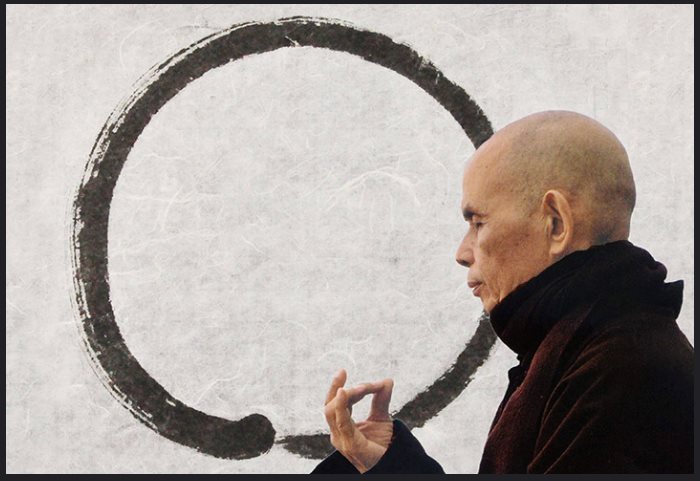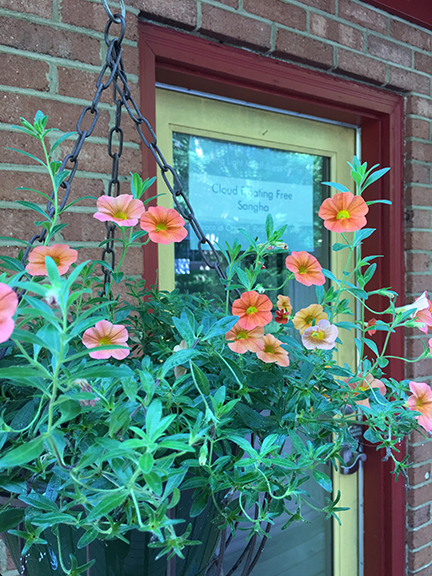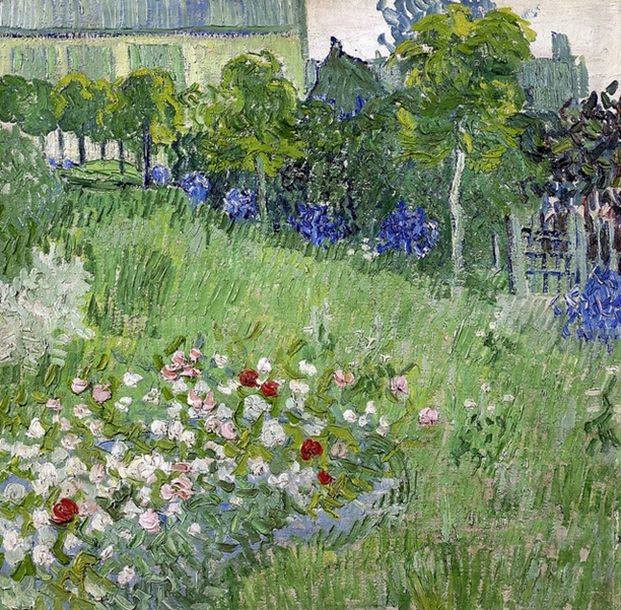by Pam Marraccini | afflictions, awareness, breathing, Buddha, compassion, consciouness, deep listening, enlightenment, freedom, garden, heart, jewel, meditation, mindfulness, Peace, seeds, Thich Nhat Hanh
An excerpt: Beginning Anew, Ceremony for the Deceased,
Chanting From the Heart, Buddhist Ceremonies and Daily Practices
by Thich Nhat Hanh and the Monks and Nuns of Plum Village

…With all our heart we go for refuge.
Turning to the Buddhas in the 10 directions
and all the Bodhisattvas, noble disciples, and self-achieved Buddhas
very sincerely we recognize our errors
and the mistakes of our wrong judgements.
Please bring the balm of clear water
to pour on the roots of our afflictions.
Please bring the raft of the true teachings
to carry us over the ocean of sorrows.
We vow to live an awakened life,
to practice smiling and conscious breathing
and to study the teachings, authentically transmitted.
Diligently, we shall live in mindfulness.
We come back to live in the wonderful present,
to plant our heart’s garden with good seeds,
and to make strong foundations of understanding and love.
We vow to train ourselves in mindfulness and concentration,
practicing to look and understand deeply
to be able to see the nature of all that is,
and so to be free of the bonds of birth and death.
We learn to speak lovingly, to be affectionate,
to care for others whether it is early morn or late afternoon,
to bring the roots of joy to many places,
helping people to abandon sorrow,
to respond with deep gratitude
to the kindness of parents, teachers, and friends.
With deep faith, we light up the incense of our heart.
We ask the Lord of Compassion to be our protector
On the wonderful path of practice.
We vow to practice diligently,
cultivating the fruits of this path.
by Pam Marraccini | afflictions, anger, awareness, breathing, compassion, consciouness, deep listening, equanimity, garden, happiness, heart, joy, listening, love, meditation, mindfulness, Peace, present, true home, understanding
Heart Like a R iver, Page 8
iver, Page 8
If you pour a handful of salt into a cup of water, the water becomes undrinkable. But if you pour the salt into a river, people can continue to draw the water to cook, wash, and drink. The river is immense, and it has the capacity to receive, embrace, and transform. When our hearts are small, our understanding and compassion are limited, and we suffer. We can’t accept or tolerate others and their shortcomings, and we demand that they change. But when our hearts expand, these same things don’t make us suffer anymore. We have a lot of understanding and compassion and can embrace others. We accept others as they are, and then they have a chance to transform. So the big question is: how do we help our hearts to grow?
Feeding our Love, Page 9
Each of us can learn the art of nourishing happiness and love. Everything needs food to live, even love. If we don’t know how to nourish our love, it withers. When we feed and support our own happiness, we are nourishing our ability to love. That’s why to love means to learn the art of nourishing our happiness.
Love is Organic, Page 14
Love is a living, breathing thing. There is no need to force it to grow in a particular direction. If we start by being easy and gentle with ourselves, we will find it is just there inside of us, solid and healing.
Be Beautiful, Be Yourself, Page 23
If you can accept your body, then you have a chance to see your body as your home. You can rest in your body, settle in, relax, and feel joy and ease. If you don’t accept your body and your mind, you can’t be at home with yourself. You n=have to accept yourself as you are. This is a very important practice. As you practice building a home in yourself, you become more and more beautiful.
The Practice of Metta, Page 64
To love is, first of all, to accept ourselves as we actually are. The first practice of love is to know oneself. The Pali word Metta means “loving kindness.” When we practice Metta Meditation, we see the conditions that have caused us to be the way we are; this makes it easy to accept ourselves, including our suffering and happiness. When we practice Metta Meditation, we touch our deepest aspirations. But the willingness ad aspiration to love is not yet love. We have to look deeply, with all our being, in order to understand the object of our meditation. The practice of love meditation is not autosuggestion. We have to look deeply at our body, feelings, perceptions, mental formations, and consciousness. We can observe how much peace, happiness, and lightness we already have. We can notice whether we are anxious about accidents or misfortunes, and how much anger, irritation, fear, anxiety or worry are still in us. As we become aware of the feelings in us, our self-understanding will deepen. We will see how our fears and lack of peace contribute to our unhappiness, and we will see the value of loving ourselves and cultivating a heart of compassion. Love will enter our thoughts, words, and actions.
by Pam Marraccini | compassion, garden, love, seeds, Thich Nhat Hanh, Uncategorized, understanding
 You have two gardens: your own garden and that of your beloved. First, you have to take care of your own garden and master the art of gardening. In each one of us, there are flowers and there is also garbage. The garbage is the anger, fear, discrimination, and jealousy within us. If you water the garbage, you will strengthen the negative seeds. If you water the flowers of compassion, understanding, and love, you will strengthen the positive seeds. What you grow is up to you.
You have two gardens: your own garden and that of your beloved. First, you have to take care of your own garden and master the art of gardening. In each one of us, there are flowers and there is also garbage. The garbage is the anger, fear, discrimination, and jealousy within us. If you water the garbage, you will strengthen the negative seeds. If you water the flowers of compassion, understanding, and love, you will strengthen the positive seeds. What you grow is up to you.
– Thich Nhat Hanh
(Painting: Van Gogh)




